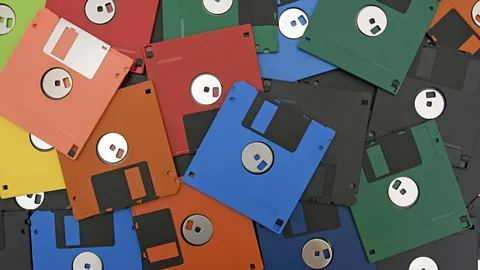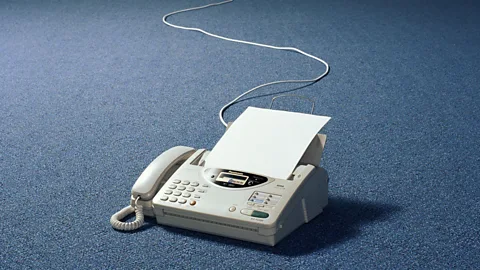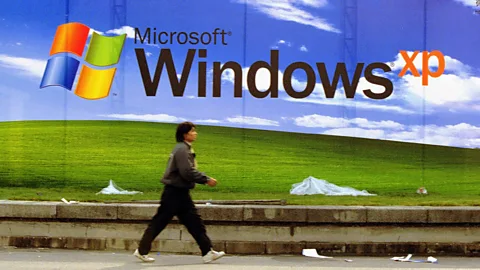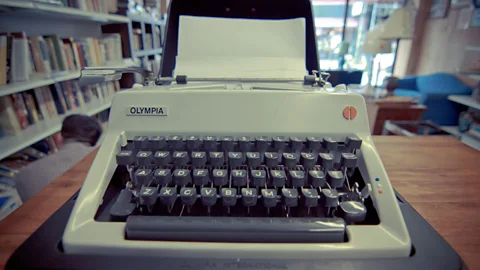Sony recently announced it would stop making Betamax tapes. Many were surprised the format was still used in Japan – but it’s far from the only retro tech clinging on.
We live in forward-looking times. From the latest smartphones to ultra high-definition screens, it often feels like gadgets are doomed to be replaced within a couple of years – or even months. That’s why the announcement that Sony would stop making Betamax tapes – last popular in the late 1970s – sounded to many as though it had come decades too late.
Who still used Betamax? As everyone knows, the format was widely trounced in competition by the VHS format during the 1980s, despite arguably being a better format. But to much of the world’s surprise, it turned out that Betamax is still on sale in Japan today, although not for much longer.
What other technologies are still hanging on despite the rise of newer alternatives?
Floppy disks
Many will have fond memories of floppy disks – which were by far the most popular way of transferring data between computers before the age of CDs, USB drives and, of course, the web.
 iStock
iStockFloppy disks are, in fact, still in regular, official use in Norway today. In September, Finn Gundersen, a software developer working in the country, posted a blog in which he explained that Norwegian doctors receive a floppy disk from the government every month. The disk carries the latest version of Norway’s patient-doctor list – a system in which every registered patient chooses a specific doctor as their “go to” physician. Because patients can change their choice of preferred doctor at any time, the list needs to be updated and distributed constantly.
“The floppy disks are inexpensive; they cost far less than a USB drive and are far less time-consuming to write to than a CD-ROM for this amount of data”, wrote Gundersen. “Given the historical restriction of delivery by mail, and the data volume being less than 1.44MB, they are the logical choice.”
Fax machines
The rise of email and document scanners has, for many, sounded the death knell for the once ubiquitous fax machine. But the technology – which was invented way back in 1842 – is still relatively common in Japan, where it was popularised in the 1970s.
 Getty Images
Getty ImagesThanks to the importance of handwriting in Japan (there are thousands of characters in Japanese alphabets), the fax machine has often been seen as a convenient way to send formal, personal notes between individuals.
Legal documents and certificates can also be faxed, of course, and some companies require that they be transferred this way in order to help guarantee their authenticity.
Feature phones
Worldwide smartphone sales have surpassed those of feature phones (handsets with more limited functionality compared to, say, iOS or Android devices) for a few years now. In sub-Saharan Africa, though, the feature phone remains king.
A study published by Pew Research earlier this year found that smartphones are yet to become popular in seven countries on the continent. This is partly due to the cost of smartphones and also the popularity of banking services like M-Pesa in Kenya and Tanzania which only needs SMS functionality for certain operations – such as transferring money between individuals.
Generally, sending text messages is the most popular activity on cell phones in the seven countries surveyed by Pew. The importance of accessing social networks or performing more complex online queries like applying for a job, for example, is much lower.
Pneumatic tubes
Pneumatic tubes, into which a container with a document may be popped to be whisked away by a rapid flow of air, were invented in the early 1800s. And yet, they remain indispensable to a large number of hospitals worldwide. The hospital at University College London is just one example.
The reason is that the tubes can transport not only documents but also packets of drugs or patient samples from one part of the building to another very quickly: a pneumatic tube message typically travels at 7.5m per second.
Air is either sucked or blown – depending on the desired direction of travel – through a tube, carrying the container with it. These days, computers are usually responsible for managing the pumps which control this air flow, making sure messages arrive at the intended destination.

Windows XP
On April 8, 2014, Microsoft ended technical support for its hugely popular operating system Windows XP. This meant the software would no longer be updated for regular users, regardless of security problems that might be discovered with it in the future.
 Getty Images
Getty ImagesThe cost of upgrading to alternatives remains prohibitive for many computer users, however, who continue to run the operating system on their machines. Last year, a survey by security firm Kaspersky suggested nearly 40% of Vietnamese users still ran XP with sizeable numbers also present in China, India, Algeria and several other countries.
Among the institutions still relying on XP is the US Navy – although it is paying Microsoft billions of dollars for the privilege of continuing to receive security updates for the software.
Typewriters
The birthplace of typing was not the computer keyboard, but the typewriter. And even though typewriters have been around for well over 100 years, there are some surprising places where they are still in use.
 Flickr/Joey
Flickr/JoeyTake the New York Police Department, for example. As recently as February, a US congressman was hoping to pass a bill to ban the devices in police stations – where they are still, it seems, frequently used for typing up reports.
What’s more, funeral directors in certain US states are required to type up death certificates by typewriter, according to the Wall Street Journal. There’s even a company, New Jersey-based Swintec, devoted to producing the machines.
Don’t believe all the hype, then, about the latest gadgets. Even though some technologies seem to be outmoded and obsolete, there is very likely someone, somewhere, who still does things the old-fashioned way.

.jfif)
Post a Comment